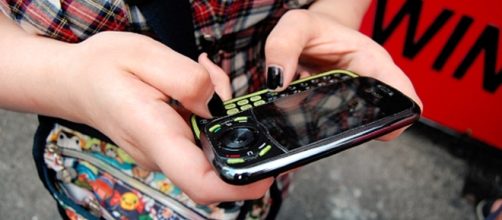In a potentially precedent-setting criminal case that ran its course with closing arguments heard Tuesday, the defendant’s guilt or innocence rests with one man. Judge Lawrence Moniz, Bristol Juvenile Court, will determine the fate of, now, 20-year-old Michelle Carter, who was charged with involuntary manslaughter following the 2014 suicide of her 18-year-old boyfriend, Conrad Roy III. He died of carbon monoxide poisoning, alone in his truck, in a Kmart parking lot outside of Boston.
During its closing, the prosecution likened Carter’s response to kicking Roy’s feet out from under him – when he relayed reservations to Carter about killing himself.
It reached a pointed that Roy apologized to his, then, 17-year-old girlfriend for not being “dead yet,” said Katie Rayburn, Assistant District Attorney.
Carter, according to prosecutors, encouraged and pressured her boyfriend by telephone and countless text messages to kill himself because she was craving attention from her peers at school and sought to elevate her social status. The state’s contention was that the defendant wanted to assume the role as his grief-stricken girlfriend.
Defense lawyer says suicide tragic, not homicide
However, Joseph Cataldo, Carter’s defense attorney, argued that Roy had the intent to kill himself. He said she was carrying her own emotional health “baggage,” and she attempted to convince him to get professional help.
Cataldo characterized Roy’s suicide as tragic but also said it is not homicide. To buttress his argument, he drew from a text that Carter received in which Roy wrote that there wasn’t anything anyone could do to “make me want to live.”
Defense lawyer says client taken on sad journey
Carter’s defense also held that Roy had the intelligence to know what he was doing when he “dragged” his girlfriend on what Cataldo described as a sad journey.
He said Roy caused his own death by his own thoughts and actions.
After a year and a half of Roy saying he wanted to end his life, the constant “wearing” took a toll on Carter, according to her lawyer, CBS News reported.
Roy’s suicide note was introduced into evidence Tuesday. In that note, he thanked his girlfriend, stating that he appreciated her effort and her kindness toward him.
Dr. Peter Breggin, a psychiatrist, also testified at Tuesday’s hearing. Breggin asserted that the defendant believed she was helping her boyfriend. He also stated that her actions might have been influenced by the anti-depressant Celexa, which she was taking after switching from Prozac three months prior to Roy ending his life. The psychiatrist testified that Carter thought she was helping Roy “get what he wanted.”
On Monday, Breggin testified that Carter started taking Prozac when she was 14 in 2011 after she became anorexic. After transitioning to Celexa, he said, it can increase the risk of suicide in people younger than age 24. The medication can also lead to panic attacks, agitation, and grandiosity.
During Cataldo’s closing, there were several times that Roy’s mother and his sister left the court. He rested his case following Breggin’s testimony.
Whether it is a crime to tell someone to commit suicide the judge will determine, as Carter waived her right to a jury trial. If the judge finds her guilty, the case will establish a precedent. Judge Moniz started deliberating Tuesday. After he's reviewed all exhibits and testimony, he said he will tell the clerk’s office. The following day, his verdict will be announced.


